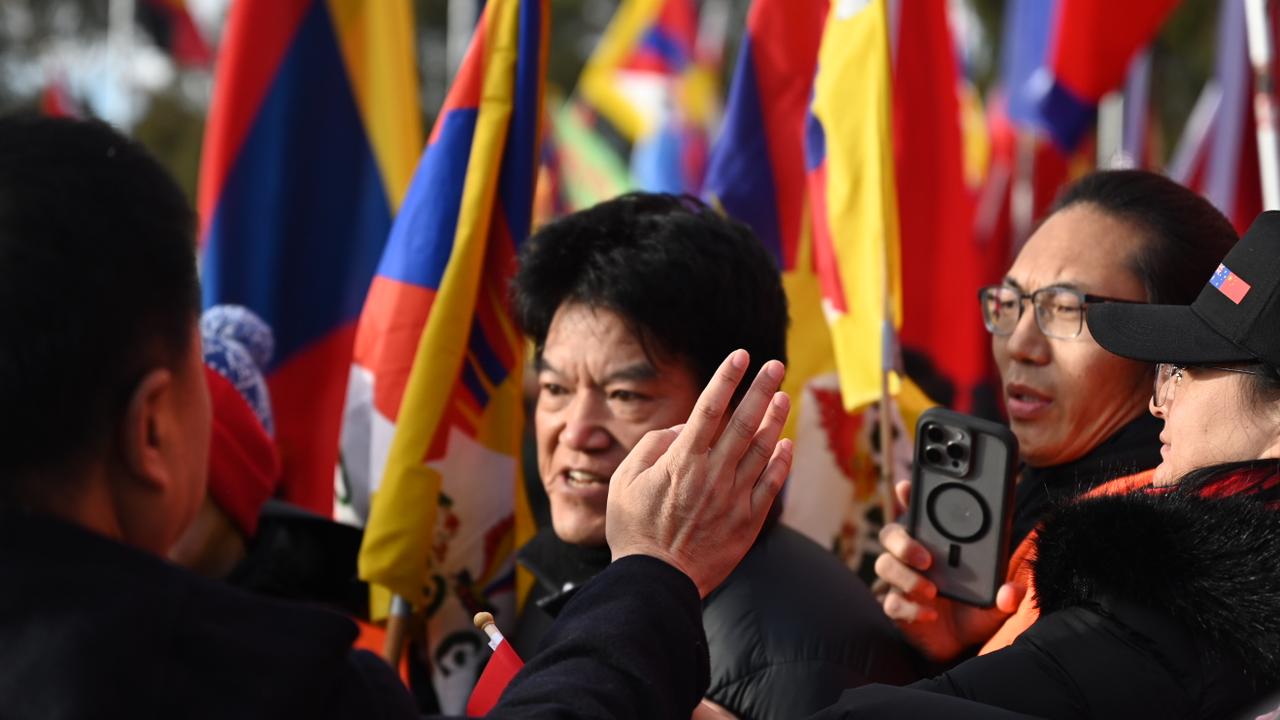Hundreds of human rights protesters and pro-China supporters gathered outside Parliament House for the arrival of Chinese Premier Li Qiang.
Prime Minister Anthony Albanese is hosting China’s second-in-command for the annual leaders meeting on Monday, followed by a lunch hosted in the Great Hall of Parliament House.
Premier Li received a ceremonial welcome on the forecourt of Parliament House, with a grinning Mr Albanese shaking his hand on arrival.
Premier Li will also hold discussions with Opposition Leader Peter Dutton later in the day.
In a planned speech, Mr Albanese will tell attendees that Australia will continue to recognise differences between the two countries, reiterating Labor’s formula to manage China relations to “co-operate where we can and disagree where we must.”
Ahead of meetings, a large group of protesters representing the Tibetan and Uyghur communities gathered outside the front lawn of parliament while Falun Gong followers lined Canberra’s main roads.
A large crowd bearing Chinese and Australian flags outside the building jostled with pro-Tibetan activists.
Earlier, opposition home affairs spokesman James Paterson urged Mr Albanese to press for the release of imprisoned Chinese-Australian writer and human rights advocate Yang Hengjun, who was handed a suspended death sentence by a Chinese court in February.
“We must do absolutely everything we can because his family are rightly very concerned about his health and wellbeing … he has been unjustly detained for too long,” Senator Paterson told Sky.
It’s expected that Mr Albanese will raise a host of serious matters during his conversation with the Premier, including Mr Hengjun’s medical condition in jail and lingering trade sanctions on Australian exports.
Later on Monday evening, Premier Li will fly to Perth ahead of a business roundtable on Tuesday followed by a visit to a Chinese-owned lithium plant.
In a statement issued after arriving in Australia, Premier Li said China-Australia relations were “back on track” after a series of “twists and turns, generating tangible benefits to the people of both countries”.
“History has proven that seeking common ground while shelving differences and mutually beneficial co-operation are the valuable experience in growing China-Australia relations and must be upheld and carried forward,” he said
